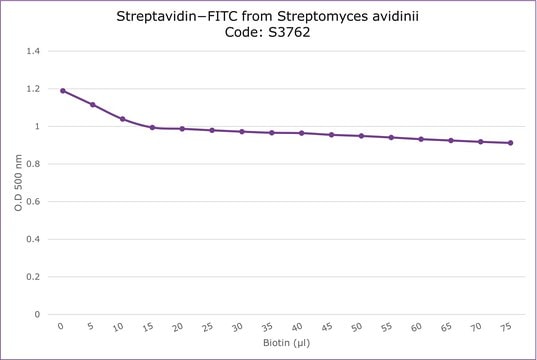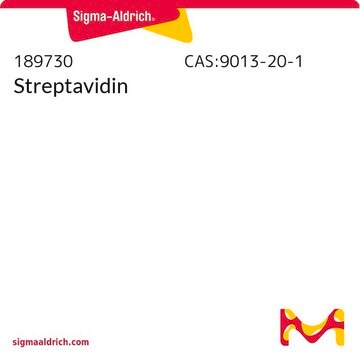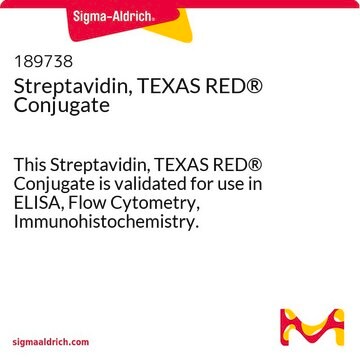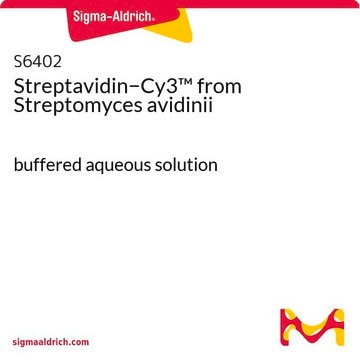Key Documents
Safety Information
S6402
Streptavidin−Cy3™ from Streptomyces avidinii
buffered aqueous solution
Synonym(s):
Streptavidin Cy3
Select a Size
About This Item
Recommended Products
conjugate
CY3 conjugate
Quality Level
form
buffered aqueous solution
extent of labeling
3-9 mol fluorochrome per mol protein
technique(s)
immunohistochemistry (formalin-fixed, paraffin-embedded sections): 1:100
shipped in
wet ice
storage temp.
2-8°C
1 of 4
This Item | S4762 | S9415 | S2890 |
|---|---|---|---|
| Quality Level 200 | Quality Level 200 | Quality Level 200, 400 | Quality Level 200 |
| form buffered aqueous solution | form essentially salt-free, lyophilized powder | form - | form lyophilized powder |
| storage temp. 2-8°C | storage temp. −20°C | storage temp. −20°C | storage temp. −20°C |
| shipped in wet ice | shipped in - | shipped in - | shipped in - |
| conjugate CY3 conjugate | conjugate - | conjugate - | conjugate alkaline phosphatase conjugate |
General description
Application
- in double immunofluorescence staining to detect biotinylated lectin
- for insulin and C-peptide staining in immunofluorescence analysis
- in double immunofluorescence to verify the presence of cells filled with biocytin
- in conjunction with biotinylated antibodies in immunohistochemistry and immunocytochemistry
- with the traditional rhodamine filter arrangements due to the spectral overlap
Features and Benefits
- Absorbance Max 552 nm
- Emission Max 565 nm
- Molar Extinction Coefficient 1.3 x 10-5 M-1cm-1
Physical form
Legal Information
Disclaimer
Storage Class Code
10 - Combustible liquids
WGK
WGK 3
Flash Point(F)
Not applicable
Flash Point(C)
Not applicable
Personal Protective Equipment
Regulatory Listings
Regulatory Listings are mainly provided for chemical products. Only limited information can be provided here for non-chemical products. No entry means none of the components are listed. It is the user’s obligation to ensure the safe and legal use of the product.
JAN Code
S6402-BULK:
S6402PROC:
S6402-VAR:
S6402-1ML:
Choose from one of the most recent versions:
Certificates of Analysis (COA)
Don't see the Right Version?
If you require a particular version, you can look up a specific certificate by the Lot or Batch number.
Already Own This Product?
Find documentation for the products that you have recently purchased in the Document Library.
Customers Also Viewed
Articles
Available Fluorescent in situ hybridization (FISH) procedures, reagents and equipment.
Our team of scientists has experience in all areas of research including Life Science, Material Science, Chemical Synthesis, Chromatography, Analytical and many others.
Contact Technical Service











